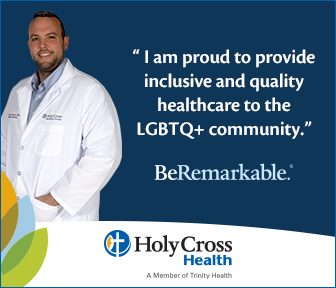
Miami Beach Pride Shows Florida Is Still Open For Business
In Florida’s never ending culture wars, Miami Beach Pride is an outlier.
...
Latest

Dominica High Court of Justice Strikes Down Sodomy Law
Dominica’s High Court of Justice on Monday struck down provisions of a law that criminalized consensual same-sex sexual relations.
...

Cristal Ramirez and The Aces Hold All the Cards
Three-quarters of the all-female Utah-native band The Aces are queer.
...
Follow Us

Mich. Democrats Spar Over LGBTQ-inclusive Hate Crimes Law
Michigan could soon become the latest state to pass an LGBTQ-inclusive hate crime law, but the state’s Democratic lawmakers disagree on just what kind of law they should pass.
...

Senate Committee: Republican Attorneys General Abused Power Demanding Trans Medical Records
In a 10-page report released on April 16 by staff for the Democratic majority of the U.S. Senate Finance Committee, the Republican attorneys general of Tennessee, Missouri, Indiana, and Texas are accu...
































